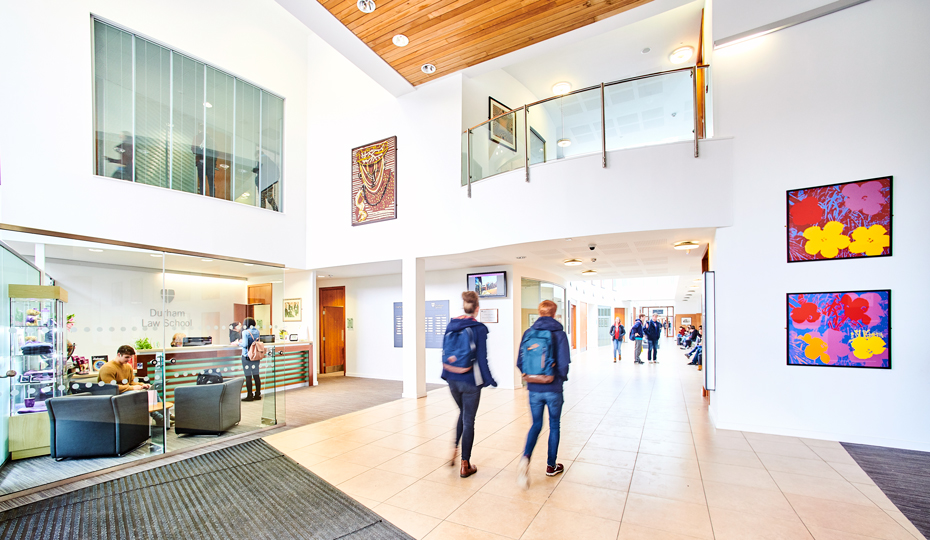Research Excellence Framework 2021
The Research Excellence Framework (REF) is the system for assessing the quality of research in UK higher education institutions.
Research making an impact
Our research brings together the leading minds in their fields who work collaboratively across departments and with our partners to develop new ways of thinking that have a positive impact on societal and global challenges.
90 per cent of our research rated 'world-leading' or ‘internationally excellent’
Six Durham subject areas were in the UK top ten for the overall quality of their research including: Geography (1st), Archaeology (2nd), Education (2nd), and Classics (4th), Theology and Religious Studies (8th) and Sport (10th).
Impact case studies
From improving people's health and influencing changes in the law, to supporting business and bringing long lost music to new audiences, our research is having an impact around the world.
Visit our Case Study page to read some of the stories behind this amazing work.
Helping species adapt to climate change
Supporting voice-hearers and changing perceptions
Pioneering research into infant sleep safety
Consumer behavioural profiling results in significant financial gains
Code of Practice
Our Code of Practice sets out the processes we used to prepare our submission. It aims to put in place processes that are fair, transparent and robust, and which support the institution’s legal and regulatory obligations.
Units of Assessment
We have submitted research to 24 Units of Assessment. Find out more by clicking on the departments below.


/prod01/prodbucket01/media/durham-university/research-/research-and-business-pages/Research.png)



/prod01/prodbucket01/media/durham-university/research-/ref-2021/REF-climate-web.png)
/prod01/prodbucket01/media/durham-university/research-/ref-2021/Hearing-the-Voice-News.png)
/prod01/prodbucket01/media/durham-university/research-/ref-2021/DISC-News.png)
/prod01/prodbucket01/media/durham-university/support-services-/careers-and-employability/events/hanson-lu-sq5P00L7lXc-unsplash-RETAIL.jpg)

/prod01/prodbucket01/media/durham-university/departments-/anthropology/80290.jpg)
/prod01/prodbucket01/media/durham-university/departments-/archaeology/30697-1-800X533.jpg)
/prod01/prodbucket01/media/durham-university/departments-/biosciences/83453-2-800X797.jpg)
/prod01/prodbucket01/media/durham-university/departments-/business-school/52785-1-800X533.jpg)
/prod01/prodbucket01/media/durham-university/departments-/classics-and-ancient-history/59368.jpg)
/prod01/prodbucket01/media/durham-university/departments-/computer-science/Image-10---New-building-400X215.jpg)
/prod01/prodbucket01/media/durham-university/departments-/chemistry/71353.jpg)
/prod01/prodbucket01/media/durham-university/departments-/earth-sciences/60175-1-800X647.jpg)
/prod01/prodbucket01/media/durham-university/departments-/education/30945.jpg)
/prod01/prodbucket01/media/durham-university/departments-/engineering/74449-2-800X533.jpg)
/prod01/prodbucket01/media/durham-university/departments-/english-studies/69683%5B1%5D.jpg)
/prod01/prodbucket01/media/durham-university/departments-/geography/Matt_Couchmann-2-800X536.JPG)
/prod01/prodbucket01/media/durham-university/departments-/history/77231-1-800X533.jpg)
/prod01/prodbucket01/media/durham-university/departments-/law-school/37034.jpg)
/prod01/prodbucket01/media/durham-university/departments-/mathematical-sciences/76436-800X533.jpg)
/prod01/prodbucket01/media/durham-university/departments-/modern-languages-amp-cultures-school-of/83288-800X600.jpg)
/prod01/prodbucket01/media/durham-university/departments-/music/45088-800X571.jpg)
/prod01/prodbucket01/media/durham-university/departments-/philosophy/16115.jpg)
/prod01/prodbucket01/media/durham-university/departments-/physics/cosmo-simulations/centaurus_optical-2-800X768.jpeg)
/prod01/prodbucket01/media/durham-university/departments-/psychology/60012-1-800X534.jpg)
/prod01/prodbucket01/media/durham-university/departments-/school-of-government-amp-int-affairs/71563-(1)-3-800X400.jpg)
/prod01/prodbucket01/media/durham-university/departments-/sociology/SASS_Landscape_1-1-800X299.jpg)
/prod01/prodbucket01/media/durham-university/departments-/sport-and-exercise-sciences/sport/86041-800X533.jpg)
/prod01/prodbucket01/media/durham-university/departments-/theology-amp-religion/46040-1-800X571.jpg)
/prod01/prodbucket01/media/durham-university-business-school/School-video-tour.png)
/prod01/prodbucket01/media/durham-university/departments-/faculty-of-arts-and-humanities/77666.jpg)
/prod01/prodbucket01/media/durham-university/departments-/physics/news-images/cancer-story-img.jpeg)
/prod01/prodbucket01/media/durham-university/departments-/faculty-of-social-sciences-amp-health/78752.jpg)